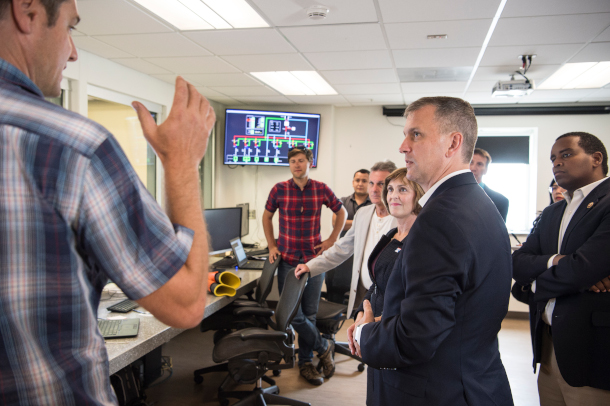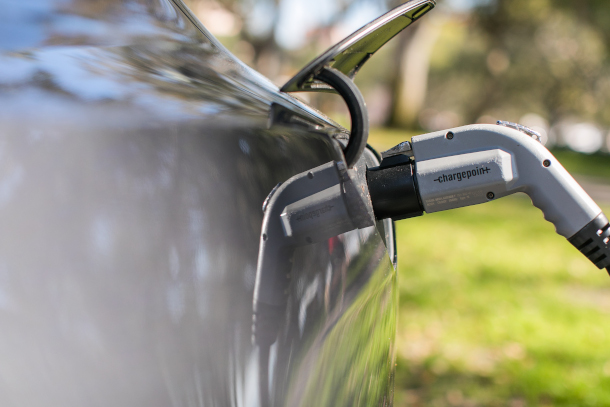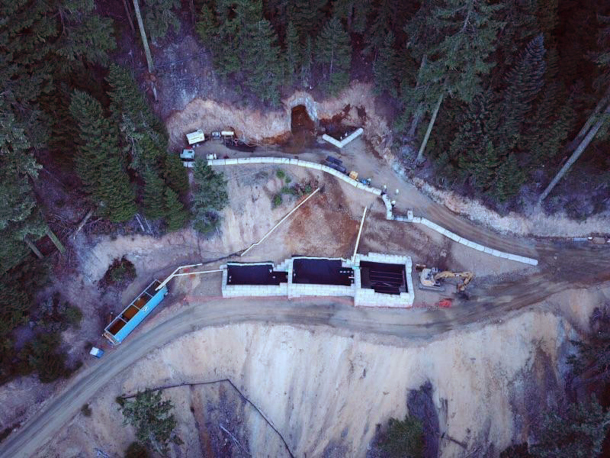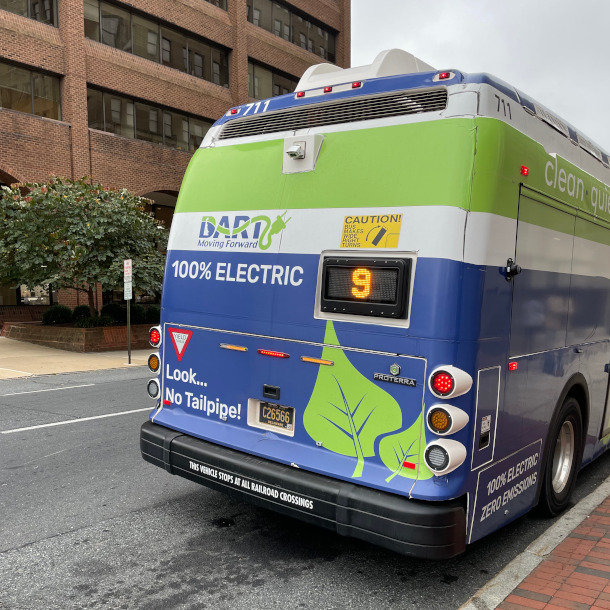Reconciliation, Climate and the Environment
Air Date: Week of October 15, 2021

Representative Sean Casten (D-IL) serves on the House Select Committee on the Climate Crisis. (Photo: National Renewable Energy Lab’s Photostream, Flickr, CC BY-NC-ND 2.0)
Multi-trillion-dollar measures are being discussed in Congress that address much of President Biden’s domestic policy goals, including those for the environment and combating climate change. Host Steve Curwood talks with Living on Earth’s Paloma Beltran to get an idea of what these bills are about.
Transcript
CURWOOD: From PRX and the Jennifer and Ted Stanley Studios at the University of Massachusetts Boston, this is Living on Earth. I’m Steve Curwood.
President Biden’s domestic policy priorities have been compiled in a giant twenty four hundred page bill with many elements, including some that address the environment and combat climate change. To bypass a likely Republican filibuster in the Senate Democrats are putting as many things on their legislative wish list as possible into this bill, using the federal budget reconciliation process that usually only happens once a year. So, with a razor thin majority in both houses every Senate Democrat and virtually every House democrat will have to vote for it. Living on Earth’s Paloma Beltran joins me now to explain what’s at stake in this bill when it does comes the environment and climate. Hi there Paloma!
BELTRAN: Hi Steve!
CURWOOD: Well, generally what are we talking about in this bill that would affect the environment and climate change?
BELTRAN: So there’s a lot. I talked to Matthew Davis, he's the Legislative Director for the League of Conservation voters and he pointed to a few critical parts of the bill.
DAVIS: One of the things that I think is, really important about the build back better act is how much environmental justice is, has been woven throughout the bill. The greenhouse gas reductions fund, also known as the Clean Energy accelerator. And there's a portion of that about $8 billion out of the $27 billion that is targeted toward solar installations in low income communities. And so that's a program where you can see really, I think, important targeting and making sure that the clean energy investments are going to those communities that have borne the brunt of fossil fuel pollution over the decades.

President Biden wants to have half of the vehicles in the US be electric by 2030. (Photo: City of St. Pete, Flickr CC, BY-ND 2.0)
BELTRAN: There’s also money to clean up superfund and brownfield sites, as well as abandoned mines and oil and gas wells. And that’s worth noting because research shows that those living or working close to a superfund site show higher levels of serious health issues like cancer and birth defects. There are also lot of communities throughout the United States that struggle with lead pipes that pollute their drinking water.
DAVIS: This bill would provide additional funding to get those pipes out and make it easier for lower income communities and utilities that have a lot of low income customers to get 100% government funding to replace those lines. And that makes a really big difference in terms of drinking water quality, and the health of as their brains are developing.
BELTRAN: The bill also tackles methane, which is 80 times more powerful than CO2 as a greenhouse gas when it’s released. Methane emitters such as oil and gas wells and pipelines would have to pay a fee aimed at making sure they meet emission reduction goals. There’s also funding for coastal communities to improve resiliency.
DAVIS: This would be things like restoring and protecting wetlands along the coast or along river ways. This helps both absorb more carbon dioxide out of the air, which is important to help, you know, reduce the effects of climate change. But it also helps buffer towns and communities from storm surges and rising sea levels.
BELTRAN: Matthew Davis also pointed to funding for the US Department of Agriculture to address massive wildfires as well as for conservation programs that would absorb and maintain carbon in the soil.

The Reconciliation package includes funding for the Bureau of Land Management to improve conditions at superfund sites like the Formosa Mine Superfund site above. Acid mine drainage out of the Formosa Mine Superfund site in Southwest Oregon has been an ongoing problem for many years. (Photo: BML, Flickr, CC By 2.0)
CURWOOD: What about electric vehicles?
BELTRAN: Yeah Steve we know that President Biden stated that he wants half of the vehicles in the United States to be electric by 2030. A big portion of US emissions reductions are expected to come from upping EV charging stations and EV purchase incentives. The bill would keep an existing EV tax credit but also provide an extra tax credit for vehicles assembled in the U.S. by unionized companies like Ford and General Motors. There’s also an incentive for purchasing inexpensive used EV’s that may help low and moderate income households transition away from gasoline vehicles.
The government would electrify its own fleet and pay for some electric school buses especially for rural and low income communities.
DAVIS: Those changes, I think, will be the kind of thing that people see right away, you know, they'll wake up in the morning and bring their kid out to an electric school bus to ride to school will have clean air to breathe when they're dropping the kid off. And they'll have the assurance of knowing that their child will be in a bus not, you know, choking on diesel pollution, but instead having clean air to breathe all the way to school.
CURWOOD: What do you hear is seen as the most transformational part of this bill?
BELTRAN: Well I talked to Representative Sean Casten, a Democrat from Illinois who’s a member of the House Select Committee on the Climate Crisis. And he points to the huge energy transformation that will result from shifting the grid from fossil fuel energy to low carbon sources.
CASTEN: Well, here's the most important thing. And this is about climate change writ large we are on the cusp of the biggest wealth transfer from energy producers to energy consumers in our history as a species. That's a really, really big deal. Because if we go out and we build out all the things in this bill, we are going to have a grid that costs no money to operate to a significant degree. Because if you think about it how much does it cost to run a solar panel, same thing, geothermal, same thing, insulate your home doesn't cost you anything on the margin. Like you have to make the investments, right? But then you build all these things out. And you have amazingly cheap energy, which is also amazingly reliable energy.

Joe and Jill Biden live in Greenville, Delaware, an upscale suburb of Wilmington that is served by the DART public transit bus system. (Photo: S. Curwood)
BELTRAN: Representative Casten said that if the language of the bill stays as it is there would be a 35% to 45% reduction in CO2 emissions relative to 2005 by 2030 and over 1000 gigawatts of new clean electricity generation installed.
CASTEN: For context, the total installed generation capacity in the United States today is 1000 gigawatts. So we're talking about in a nine year span, creating millions of jobs building these assets, drastically lowering people's cost of energy. And if we're doing it smartly, doing it in a way that makes sure that those benefits are equitably distributed throughout our society, it is truly transformative.
BELTRAN: And with the COP 26 summit in Glasgow right around the corner US lawmakers like Representative Casten are hoping President Biden can have action instead of just promises to bring to the table. At the top of the list is congress passing the Clean Electricity Energy Program that would effectively decarbonize the nation’s energy sector.
CASTEN: It is extremely important that we pass these bills before November, when we will be back at Glasgow, for the next conference to put this down. Both because we as the United States, I want us to be in a position of leadership. But also, because the rest of the world wants us to be in that position of leadership.
BELTRAN: Gaining credibility in the international climate negotiations is important.
And even more important, would be the first ever passage of comprehensive federal laws to fight climate change with science based solutions in a way that also helps achieve the stated goal of addressing environmental justice.
CURWOOD: That would indeed be historic. Thank you Paloma!
BELTRAN: Thank you Steve!
CURWOOD: That’s Living on Earth’s Paloma Beltran.
Links
Read the full 2022 Budget Resolution Agreement Framework (The Reconciliation bill)
Living on Earth wants to hear from you!
Living on Earth
62 Calef Highway, Suite 212
Lee, NH 03861
Telephone: 617-287-4121
E-mail: comments@loe.org
Newsletter [Click here]
Donate to Living on Earth!
Living on Earth is an independent media program and relies entirely on contributions from listeners and institutions supporting public service. Please donate now to preserve an independent environmental voice.
NewsletterLiving on Earth offers a weekly delivery of the show's rundown to your mailbox. Sign up for our newsletter today!
 Sailors For The Sea: Be the change you want to sea.
Sailors For The Sea: Be the change you want to sea.
 The Grantham Foundation for the Protection of the Environment: Committed to protecting and improving the health of the global environment.
The Grantham Foundation for the Protection of the Environment: Committed to protecting and improving the health of the global environment.
 Contribute to Living on Earth and receive, as our gift to you, an archival print of one of Mark Seth Lender's extraordinary wildlife photographs. Follow the link to see Mark's current collection of photographs.
Contribute to Living on Earth and receive, as our gift to you, an archival print of one of Mark Seth Lender's extraordinary wildlife photographs. Follow the link to see Mark's current collection of photographs.
 Buy a signed copy of Mark Seth Lender's book Smeagull the Seagull & support Living on Earth
Buy a signed copy of Mark Seth Lender's book Smeagull the Seagull & support Living on Earth

